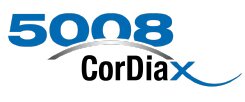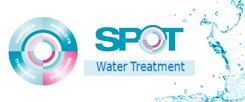Home / FlashMed
FlashMed
| Titolo | ASN 2005 - [PUB550] Self-Reported Sleep Quality (SQ) and Quality of Life (QOL) in the Renal Research Institute (RRI)-Chronic Kidney Disease (CKD) Study. |
| Autore | R. Aouad, X. Zhang, S. Chung, B. Gillespie, G. Eisele, F. Finkelstein, M. Kiser, S. Rajagopalan, M. Kuhlmann, N. Levin, R. Saran Int Med/KECC, Univ of Mich, Ann Arbor, MI; Int Med, Med Coll Albany, Albany, NY; Int Med, Yale Univ, New Haven, CT; Int Med, Univ of N Carolina, Chapel Hill, NC; Cardiology, Mt Sinai School of Medicine, New York, NY; RRI, New York, NY |
| Referenza | ASN 2005 - 8.11.2005 - 13.11.2005 Philadelphia, Pennsylvania, USA |
| Contenuto | This study evaluated the relationship between SQ and both QOL and GFR progression in a CKD cohort. The RRI-CKD study recruited patients at 4 US renal clinics. The KDQOL SF-36 at enrollment included 3 questions related to SQ (daytime sleepiness, sleeping less at night, and SQ rating 1-10). Linear and logistic regressions were used to assess predictors of SQ, and to investigate association between GFR progression and SQ. Adjustments included demographics, comorbidities, SBP, BMI, proteinuria, and ACEI or ARB use. The 577 patients who completed the KDQOL at enrollment were 42% female, 19% African American, had mean age 60yrs, mean baseline GFR 23.3ml/min/1.73m2 and median follow-up 703 days. The KDQOL mental and physical component mean summary scores were 50.1 + 10.4 (MCS), and 37.5 + 11.5 (PCS). For each unit higher SQ, MCS was 1.1 higher (p=0.0001), PCS was 2.0 higher (p<0.0001), the odds of daytime sleepiness were 30% lower (OR = 0.70, p<0.0001), and odds of sleeping less at night were 63% lower (OR = 0.37, p<0.0001). SQ was positively correlated with self-reported exercise (r = 0.14, p=0.001), self-care (r = 0.22, p<0.0001), self-reported health status (r = 0.30, p<0.0001), and feeling calm and peaceful (r = 0.38, p<0.0001), and negatively correlated with bodily pain (r = -0.36, p<0.0001) and feeling down in the dumps (r = -0.25, p<0.0001). Rate of GFR decline was slower with each unit increase SQ (GFR slope = 0.25 ml/min/1.73m2/yr, p=0.14), each unit increase in serum albumin (GFR slope = 2.09; p=0.030) and faster with each 10mmHg increase in SBP (GFR slope = -0.44; p=0.013). SQ at enrollment did not significantly predict mortality or ESRD. Better self-reported SQ was correlated with higher mental and physical health scores, and other QOL indices. Although SQ was not significantly related to GFR progression, further investigation is warranted. Disclosure - Grant/Research Support: Renal Research Institute |
| Data | 20.12.2005 |
| Lista completa |
|







